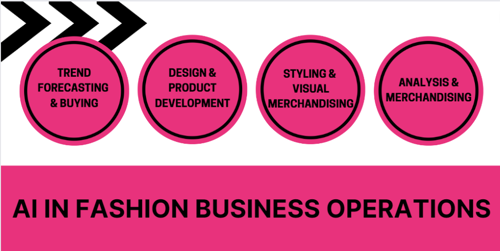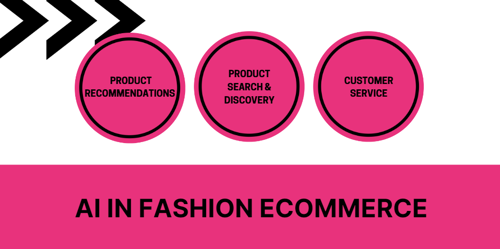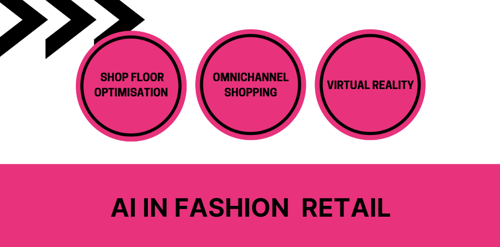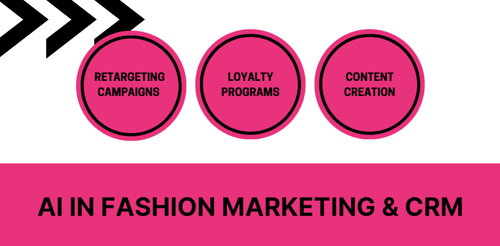AI In Fashion Business Operations - Trend Forecasting and Buying
Artificial intelligence has advanced capabilities when it comes to retail data analytics, which makes it incredibly useful in the fashion industry for forecasting trends and sales. This information can be used by fashion buyers to better predict customer behaviour and reduce the number of unsold items each season.
AI has the power to analyse vast amounts of data from various sources such as social media, the runway, fashion blogs, sales data and other trend forecasting tools. This information is then combined with past product performance and customer behaviour data to establish the optimum collection of products that will best resonate with the retailer's target audience.
Not only can AI inform buyers about which products are performing well or will perform well, but they can also provide insight on the specific components of the garments such as colour, prints, sleeves, necklines and more. In addition, it has the capability to provide real time data allowing buying teams to take on a more proactive approach that will help them stay relevant and ahead of the competition.
AI In Fashion Business Operations - Design and Product Development
By using AI tools to conduct trend forecasting for elements such as colour, fabric, patterns and cut as well as analysing past and future performance indicators, designers can also use AI to create new product designs. This allows designers to quickly and accurately generate trend led designs for production that are complete with sewing patterns. Designers can then make adjustments to the designs as they see fit before signing off the final look.
Artificial intelligence can also be used to streamline much of the production process by creating digital samples and conducting fit tests. In addition, it also has the capability to accurately automate fabric quality control, pattern inspections, colour matching and defect detection. This greatly cuts down the time it takes to design and test products before manufacturing.
Though artificial intelligence already has many uses within fashion design, the technology is continuously being advanced. For example, a greater focus on sustainability means that AI could be used to find alternative materials that won’t harm the environment.
AI In Fashion Business Operations - Styling and Visual Merchandising
Artificial intelligence has a huge range of uses for online stylists and visual merchandisers. It can analyse customer data and preferences to provide personalised recommendations to online shoppers and provide styling tips. By showing users products that match their preferences, you can improve the overall online experience, increase customer satisfaction and ultimately increase sales and revenue.
AI styling tools and platforms can be used by retailers to build, track and manage customer styling profiles. Based on the information the user provides, AI can create personalised recommendations for each person, speeding up the virtual styling process. These outfits can then be added to the shopping basket, shared via email or delivered straight to the customer.
AI can also be used to create personalised product recommendations and bespoke pages based on different trends, customer segments and geographical locations. This can be really useful when creating custom pages for paid advertising purposes as it drastically speeds up the process of manual product presentation and reduces cost.
AI In Fashion Business Operations - Merchandising and Analysis
One of the main benefits of artificial intelligence in the fashion industry is that it can quickly and easily understand complex data and provide an in-depth analysis. This is incredibly useful for merchandisers who need to manage product inventory, manage pricing and costs and conduct competitor analysis.
AI can vastly improve all aspects of stock control and management by minimising stock shortages and reducing overstocking. Retailers can use AI to assess when and where products should be placed based on location and seasonality. This allows them to be ahead of the curve in terms of where supply and demand is, helping to reduce surplus stock and reduce waste.
Lastly, retailers can use AI to monitor competitor prices to determine the most effective product and pricing strategy in order to gain the greatest ROI and have the most competitive prices. As a result, they can identify the best time to keep prices low while retaining minimal margins and when to slightly increase prices to maximise profits.









